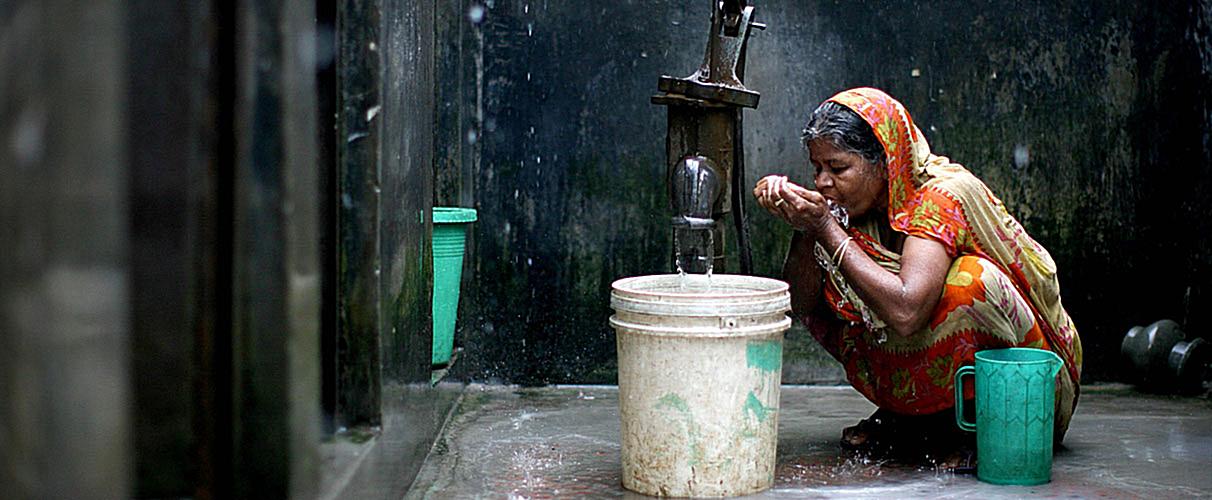WOMEN SANITATION AND RELATED PROBLEMS
“One person in three lakhs access to adequate sanitation.” According to a report at the end of 2014, currently, 2.5 billion people live without proper sanitation and in that 1.25 billion are women. Lack of sanitation problems not only leads to health problem but also to their education, dignity, safety, and overall well-being. Women play a vital role… Read More »

“One person in three lakhs access to adequate sanitation.”
According to a report at the end of 2014, currently, 2.5 billion people live without proper sanitation and in that 1.25 billion are women. Lack of sanitation problems not only leads to health problem but also to their education, dignity, safety, and overall well-being.
Women play a vital role in raising awareness about water and sanitation issue in the community. Due to cultural and historical reasons women are primarily water collector, user, and transporter. They have the main responsibility for their child and family health and, they have the sole responsibility of water and sanitation. But due to many reason women view’s and choices are not given values in decision making bodies. From many years women have gathered much information including location, storage methods, and quality analysis. As well as they are very well aware of the problem related to sanitation and health of their community and society.
Global Problems of Women Sanitation
• 1 in 3 women worldwide risk shame, disease, harassment and even attack because they have nowhere safe to go to the toilet.
• Of these, 526 million women have no choice but to go to the toilet out in the open.
• Women and girls living without any toilets spend 97 billion hours each year finding a place to go.
• Every day, around 2000 mothers lose a child due to diarrhea caused by a lack of access to safe toilets and clean water.
Present Condition in India
India has the highest number of people defecating in open. Census 2011 has also revealed that only 32.7 percent of the rural population has access to toilets. Although several initiatives had been taken by the present government after coming to power in 2014 like Swatch Bharat Abhiyan. Data has changed insignificantly after that, but the real figure will come tonus in 2021. Open defecation has been linked to serious health consequences and loss of wages due to illnesses.
For women and girls of our country, the consequences of not having proper sanitation go beyond ill health. Apart from the humiliation of relieving oneself in the open area, there is also the fear of being harassed, sexual violence and the psychosocial stress that comes with it. Many cases have been registered regarding harassment to women when they go for defecating in open.
Every day, almost 400 children under five in India die from diarrhea linked to poor sanitation and hygiene. India has the highest number of diarrhea-related deaths among children under five worldwide. The problem like this is a huge issue to the developing country like India. India was to plan and invest in their future. Adolescents and are the most important asset of a country and it must concern for it.
Conclusion
Toilet insecurity is not only about the multiple risks a woman subjects herself to while defecating in the open due to lack of toilet facility, but it is also about having access to a public toilet which is unusable or unsafe. Besides less number of toilets, inadequate sanitation includes poor quality toilets, lack of cleanliness and maintenance make toilets unusable for women and other. The government needs to build more private toilets with sewerage connections when space is available and shared toilets when space is scarce.
– Subham Saurabh
Content Writer @ Legal Bites
References
1. Joint Monitoring Programme for Water Supply and Sanitation, World Health Organisation and UNICEF (2014).
2. Sanitation for Women: The Problem and Solution, available at https://lifewater.org/blog/sanitation-for-women/
3. Banega Swatch Bharat, NDTV India.
Related Links
2) GENDER NEUTRALITY AND LGBT RIGHTS
3) Women’s march- An opposition to social circumstances
4) Laws related to Women in India
5) MUSLIM WOMEN ARE NOT HAPLESS VICTIMS
Disclaimer: Legal Bites is determined to include views and opinions from all sides of the spectrum. This doesn’t mean we agree with everything we publish. But we do support their right to the freedom of speech. In case of content writers/editors/bloggers articles, the information, ideas or opinions in the articles are of the author and do not reflect the views of Legal Bites. Legal Bites does not assume any responsibility or liability for the same.


